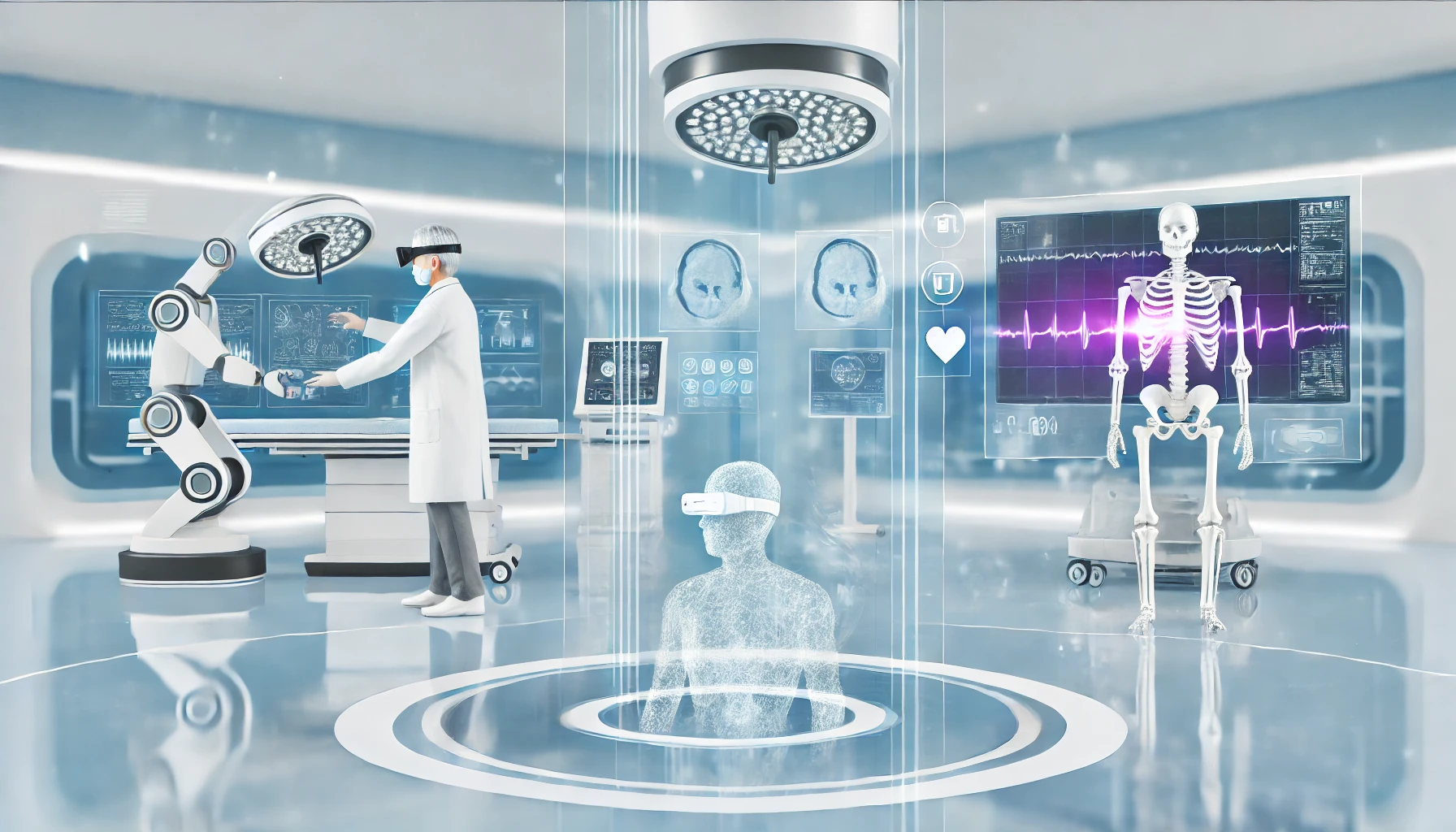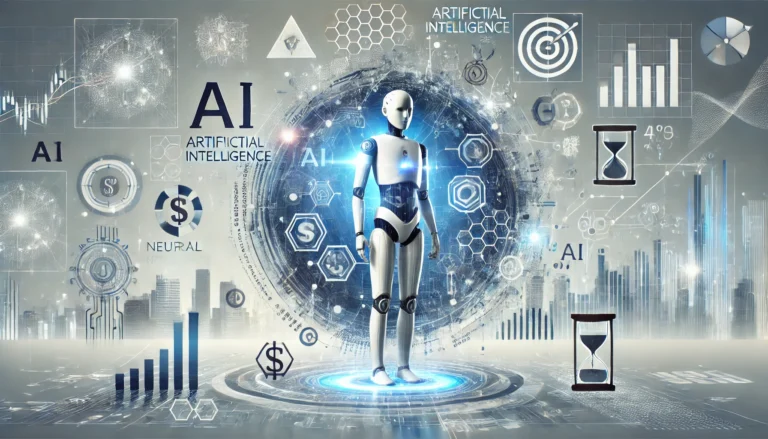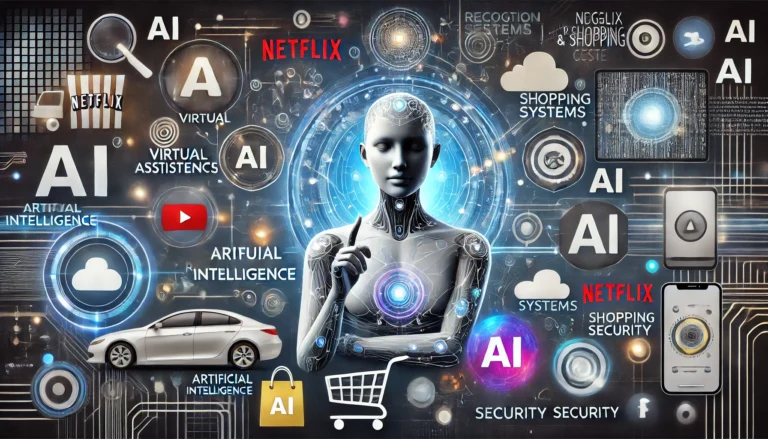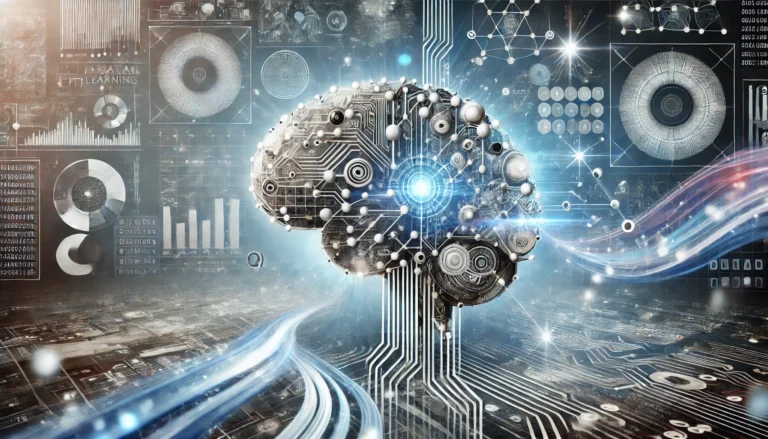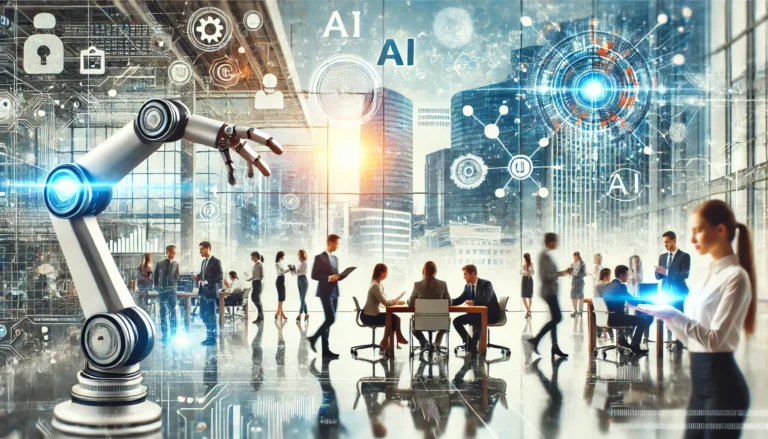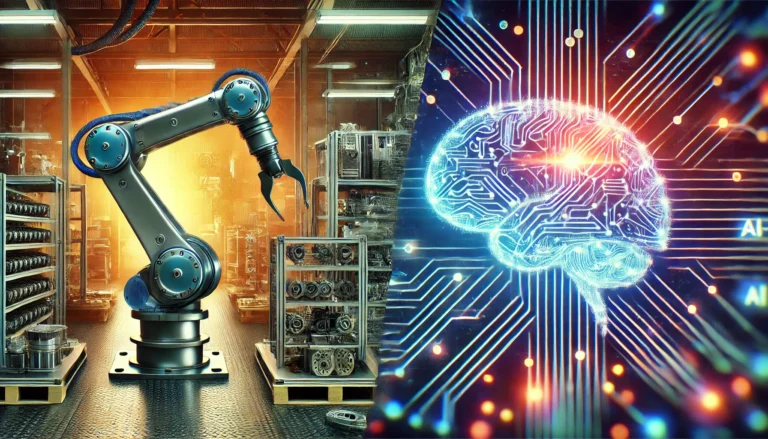How AI is Changing the Future of Medicine
Artificial Intelligence (AI) is profoundly transforming how medicine is practiced and how healthcare is delivered. With the rapid advancement of technology and the availability of large volumes of data, AI has become an essential tool in diagnosing, treating, and preventing diseases. In this article, we will explore the ways AI is changing the future of medicine, its key applications, and the benefits it brings to patients, healthcare professionals, and healthcare systems.
The Role of AI in Medicine: A Revolution in Progress
In recent years, AI has evolved impressively, and its impact on medicine is remarkable. AI’s ability to analyze large amounts of medical data, identify patterns, and make predictions based on algorithms is changing the traditional paradigm of medicine. From more accurate diagnoses to personalized treatments, AI offers solutions that were once impossible.
AI in Medical Diagnosis
One of the areas where AI has shown the greatest impact is in medical diagnosis. Advanced machine learning algorithms are being trained to analyze medical images, such as MRIs, CT scans, and X-rays, with precision often superior to that of human doctors. For example, AI algorithms have been used to detect diseases like cancer early, with impressive accuracy rates.
AI-powered medical image analysis not only increases precision but also speeds up the diagnostic process. This means that diseases can be detected earlier, allowing for faster and more effective treatments. Additionally, AI is being used to interpret blood tests, ECGs, and other lab tests, providing more detailed and personalized analysis for each patient.
Personalized Medicine and AI-Based Treatments
Another promising field where AI is transforming medicine is in the personalization of treatments. Personalized medicine aims to tailor treatments based on each patient’s genetic profile, medical history, and lifestyle. With AI, it is possible to analyze massive amounts of genetic data and identify mutations or patterns associated with specific diseases. This allows doctors to develop individualized treatments that have a higher likelihood of success.
Furthermore, AI can predict how a patient will respond to certain treatments. For example, in the treatment of chronic diseases such as diabetes or heart disease, AI can monitor a patient’s health data in real-time and adjust treatments according to changes in their health status.
AI in Drug Discovery
The process of discovering new drugs has traditionally been time-consuming and expensive. However, AI is speeding up this process by analyzing vast volumes of biological and chemical data to identify promising molecules that can be developed into drugs. Pharmaceutical companies are using AI algorithms to predict how different chemical compounds interact with proteins in the human body, identifying potential treatments for a range of diseases.
For instance, during the COVID-19 pandemic, AI was used to quickly identify compounds that could be effective against the virus, accelerating the development of treatments and vaccines.
AI and Telemedicine
Telemedicine has become an essential part of modern healthcare, especially during the pandemic. AI is enhancing telemedicine by offering more advanced and automated virtual consultations. AI algorithms can perform initial triage, gathering basic information about a patient’s symptoms before a consultation with a human doctor. Additionally, AI can help diagnose simple conditions based on patients’ responses to pre-programmed questions.
The combination of AI and telemedicine not only improves the efficiency of care but also expands access to healthcare for remote areas or patients with mobility challenges.
Benefits of AI for Patients and Healthcare Professionals
AI offers numerous benefits for both patients and healthcare professionals. Among the main benefits for patients are:
- Faster and more accurate diagnoses: AI reduces the time required to identify diseases and improves the accuracy of diagnoses.
- Personalized treatments: With individual data analysis, patients can receive treatments more tailored to their specific needs.
- Easier access to healthcare: AI-powered telemedicine allows remote consultations, reducing geographical and financial barriers.
For healthcare professionals, AI represents a powerful tool to improve clinical efficiency. Doctors can rely on AI to process large volumes of data more quickly and efficiently, allowing them to dedicate more time to direct patient care.
Moreover, AI systems can assist in hospital management, optimizing resource allocation and improving care logistics, which is crucial for hospitals and healthcare centers dealing with a large number of patients.
Challenges and the Future of AI in Medicine
Despite the impressive advances, the integration of AI into medicine still faces significant challenges. Issues related to data privacy, the ethics of algorithm use, and the need for clear regulations are major concerns. Additionally, AI should not replace human intervention but rather serve as a support tool for doctors and other healthcare professionals.
The future of medicine with AI is promising. With the continuous improvement of algorithms and the growing availability of health data, AI is likely to play an increasingly central role in healthcare. From faster and more accurate diagnoses to completely personalized treatments, AI is revolutionizing medicine as we know it.
In summary, AI is transforming the future of medicine, providing better care for patients and optimizing the work of healthcare professionals. Its impact will continue to grow in the coming years, shaping a more efficient, accessible, and personalized future for global healthcare.

